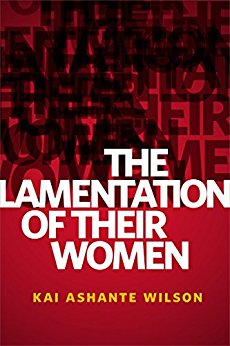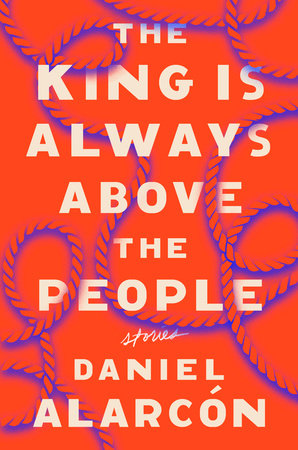Welcome to ‘Reviews’, the segment where I review stories I’ve read recently with varying degrees of detail and inanity. Read on to see what I’ve been enjoying and upon which writer the most illustrious and highly coveted 🏆 emoji for ‘The Best Damn Thing I Damn Did Read’ has been bestowed.

Euphoria by Lily King – 3.5 STARS
2014, literary/historical fiction, (minimally elaborated upon) bisexual rep via one of the main characters
This one’s about three anthropologists who are studying Aboriginal tribes in Australia, two of whom are in a relationship, the other a stranger-turned-friend. The three learn more about each other’s troubled pasts and develop an obsession with each other over the course of one tumultuous summer. This was decent enough, but dear Reader I was promised obsession and I didn’t get it to the extent that I wanted. To my readers who are also writers, obsession is definitely something you show as opposed to tell. This is nevertheless a good one to read under sunshine.

To the Bright Edge of the World by Eowyn Ivey – 4 STARS
2016, literary/historical fiction, (minimally elaborated upon) gay rep in one of the side characters
Bright Edge… is a novel about an explorer Allen Forrester who in 1885 undertakes a perilous (and even mystical) expedition to Alaska. It’s also about the transformative year his wife Sophie goes on to have, who is left behind just as she finds that she’s pregnant. We go back and forth between Allen’s diary entries as he faces setback after setback, and Sophie’s journal entries as she loses and then begins to find herself by taking up photography. We also skip tens of years into the future with correspondence between Allen Forrester’s now elderly descendent and a staff member at a museum who takes interest in these unusual diaries. This is the kind of historical fiction I love: dealing with ‘forgotten’ events, transformative encounters, and full of perspectives that all add something to the story. This book definitely could have been shorter but it truly felt like I had ended a journey of my own as I got to its end. This was good.

Days Without End by Sebastian Barry – 3 STARS
2016, literary/historical fiction, war fiction, gay rep, trans rep
I had issues with this one. I read DWE after seeing that it had been nominated for the Man Booker prize this year. It’s also published by Faber, where I was attempting to get a job ( ).
).
This one’s set in the late 1800’s and is about the lives of two U.S soldiers, Thomas McNulty and John Cole, who spend the majority of the book in a regiment fighting against Native Americans in the American Indian Wars and later in the Civil War. They are also in a relationship. This is expressly said, and the notion that Thomas is a trans woman is suggested over the course of the novel. So I think it’s fair to state that this is a story of two LGBT soldiers attempting to come to terms with the genocide they are partly to blame for and to carve out a life together away from war. For me, reading about all the fighting got repetitive. But the ambivalent reading experience I had with this book was not entirely wasted because it did leave me wondering what is gained from retelling colonialist narratives from the perspective of LGBT white people, specifically? It’s an interesting question, no? Is there something different about this novel even though it’s just another story about white people killing and colonising and pillaging people of colour, because those genocidal acts are being viewed from two white people who are part of a minority group, who have to keep themselves closeted?
I have a point to make but it needs groundwork. So here are some more-or-less self-evident things: as you well know, dear reader, being LGBT is a minority status and while the corollary of being queer is our increasing chances of being oppressed, persecuted and straight-up killed, I would like to think our queerness generally increases our empathy towards others, especially towards other minorities. That notion, however, is naïve because in reality we’re all a smorgasbord of privileges thrown into a bucket to create an…interesting alcoholic beverage, one that would likely ferment in fun ways if you left it out too long. Ew. Although LGBT representation is on the rise what with social media, and in mainstream art—novels and film, in particular, but which require big studios and publishers taking a chance/believing work with queer main characters is profitable —we are very much still in the shade. This is because when LGBT representation actually does appear, it tends to be about white LGBT people…because racism (2017 in two words) or an erroneous notion that main characters who are POC are by their skin colour also dissonant with what films the ‘general public’ wants to watch, or more importantly, to pay for. [Why is this an erroneous notion? You need only check out the box office figures for Get Out, Moonlight, Girls Trip, Lion, and Slumdog Millionaire among others. The upcoming Marvel film Black Panther also says hi.]
But however likeable Thomas and John Cole are as individuals and as partners (and they are likeable), however their (relatively) greater empathy for Native Americans and African-Americans, and however their queerness plays a role in promoting both of those things…these two characters maintain(ed) the status quo. Being likeable and empathetic to other people’s struggle may be respectable but doesn’t absolve them of genocide. What interests me, then, about the hype Days Without End is receiving, with its queer love story and Barry’s distinctive, ‘beautiful’ writing style at its centre (and a style that persists as his main characters perform genocidal acts) is the following question: will the queerness of Barry’s characters become instrumental in helping to market this retelling as a ‘beautiful’, ‘progressive’, ’subversive’ or otherwise palatable novel when it remains fundamentally about white characters performing genocide on mostly nameless Native Americans?
Added to that are two things, namely that:
- It is very difficult for novels about us LGBTQ+ people to make it to the mainstream, and
- With the success of the film Moonlight the exception to the rule, the rule is that to sell books featuring LGBTQ+ characters, they must be LGBT+ white characters and written by white writers, too. [In my eight years of reading I have encountered but one novel written by a person of colour featuring white gay characters that sold very well, and that is A Little Life by Hanya Yanagihara. That one’s where the gay and self-harming main character, Jude, suffers beyond measure and that he does not receive a happy ending is but a very light way of putting it.]
So, that a novel like Days Without End may make it to the mainstream with LGBT main characters yet carrying the trappings of white privilege, to be possibly sold as a ‘beautiful’ or ‘subversive’ retelling on these horrible historical events because queerness is present…well, dear reader, it makes me sad.

The Lamentation of their Women by Kai Ashante Wilson – 4 STARS, and 🏆
2017, Urban fantasy, horror, short story, African-American rep
My first short story of this review post, and right now you can click here to go read it! Not only was it brilliant but you can go read it too for free, so go do that. In this story a woman from the Bronx stumbles upon questionable items rummaging through her aunt’s house, who has recently died. She (and her boo-thing) are then compelled toward certain misadventures. Continue reading “Reviews, I” →











